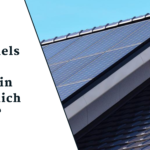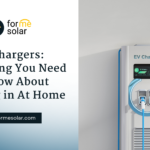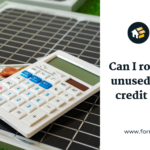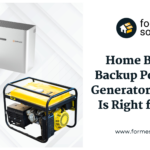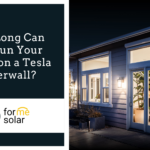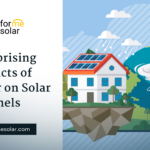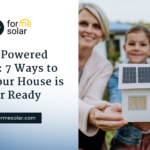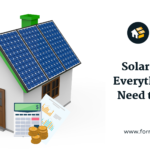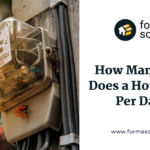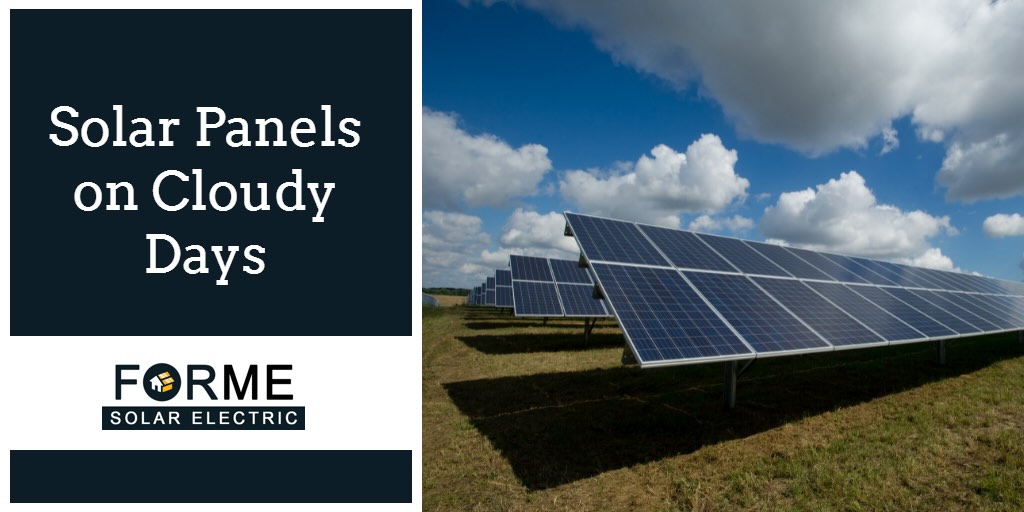
Table of Contents
Solar Panels on Cloudy Days
Over the last decade, solar panels have taken the globe by storm, and their popularity does not appear to be waning anytime soon. Solar installations surpassed 2 million in 2019 and are predicted to more than double by 2023.
Despite the fact that these systems aren't new, many individuals still don't understand how they function. If you've ever wondered, "How do solar panels generate electricity?" ", "Can solar panels be used at night?" ", you're not the only one. If you decide to utilize solar panels for your house's energy, you should understand how solar panels may be a reliable source of power at night when there is no accessible sunshine.
Do Solar Panels Work on Cloudy Days?
Yes, solar panels operate on cloudy days; they just don't perform well as they are supposed to on a sunny day. On a cloudy day, solar panels will yield around 10 - 25% of their regular power production, according to estimates. It is correct to argue that solar panels do not perform as effectively in wet or cloudy conditions.
It's worth noting that, contrary to common belief, gloomy and rainy areas are nevertheless preferred locations for solar energy installations. The most telling indicator of the popularity of solar panels is the cost of power, not the amount of sunlight a city receives. Many of the top solar cities in the United States are not extremely sunny. Rather, they have high electric rates, thus homeowners profit greatly in terms of bill savings and a speedy break-even point.
Take, for example, San Francisco, which is famed for the fog that envelops the city for the majority of the year. Despite this, San Francisco is a top-five solar city due to its high energy costs and a usually mild climate that provides soft but steady sunshine all year. This example demonstrates why sunshine alone cannot predict how effective solar will be at producing energy savings.
In rare circumstances, clouds can actually outperform ordinary bright conditions in terms of panel performance. A cloud may reflect or even intensify sunlight, resulting in more electricity output from your solar panels.
Do solar panels work at night?
No, they do not. Solar panels, as previously said, require light — preferably sunshine — to generate electricity. Although they may create some energy from other light sources, such as street lights and even the moon, the output is quite low. As a result, solar panels go into sleep mode at night, which means they become inactive and stop producing power.
A solar panel system's objective is to capture sunlight, also known as photovoltaic energy (PV), and convert it to direct current (DC) electricity. The direct current (DC) electricity is routed via the system's inverter and converted to alternating current (AC) power, which is what most houses use. At that moment, your solar array will be able to supply power to your home. If it generates more electricity than you use, the excess is routed back into the power system.
Given that solar panels can only generate power during the day, the issue emerges, "How will solar panels offer power overnight when there is no sunlight?" "There are two basic options that can assist in resolving that issue." Net metering and solar-plus-storage technology enable your solar panel system to access power overnight when solar panel production is inactive, either through a link to the electric grid or a battery. Solar panels provide a sustainable round-the-clock energy option due to grid connections and solar energy storage.
How do solar-paneled homes get power at night?
As previously stated, solar panels generate no power at night. They do, however, produce more electricity throughout the day when the sun is out. Solar customers utilize either solar battery banks or net metering to balance things out and keep the electricity going after dark.
How solar storage and net metering make solar energy viable at night?
Net metering is one of the most important reasons that residential solar panel systems are a wise investment. Here's a short explanation of what net metering is: when your solar panels generate surplus electricity, they send it back into the grid. The utility then refunds your power bill to reimburse you for the surplus grid supply. In a way, the excess production of your system can make you money.
Net metering also implies that your home will remain connected to the grid even after you add solar panels. This grid connection ensures that you continue to have electricity despite daily or seasonal changes in solar panel output levels. During the day, your panels may generate more energy than you require (especially during the balmy summer months).
They will not, however, generate at night when there is no sunlight - that is when you use the credits you earned by sending extra power back to the grid. In an ideal world, the credits generated by your panels' excess output will cover you when you need to draw power from the grid. The grid acts as a sort of energy storage in this situation.
The sole disadvantage of net metering is that it is not accessible everywhere in the United States, which means that additional night time power supply choices are required. All solar panel installations were hosted off-grid prior to the introduction of grid-tied inverters, which allow net metering to occur today. The system's owner had to generate all of their own power and store extra with the use of powerful battery banks. Solar storage alternatives were expensive at the time, and the combination made solar a high-priced choice.
However, the solar storage business is heating up. Many households in the United States now believe that batteries are the greatest option for energy storage at night. If you use a lot of electricity or your utility doesn't provide net metering, you should ask your solar installer to include a solar battery in his or her solar price. Now is the time to request a quote! We will provide some insight into your power use and how much solar may save you.
Key takeaways: when will solar perform the best?
Solar panels will not create power if the sun is obscured by clouds, and they will surely not produce electricity if there is no available sunlight throughout the night. When considering a solar installation, the key is to prepare ahead of time. In today's day and age, anyone can locate a solar energy system to power their house at the correct price, whether it's through net metering or the proper solar energy storage solution.
The next step is to determine how much solar will cost you and to research what others in your community are spending when they go solar. To get a better sense of the true cost of solar, contact us now and we'll send you estimates that show you how much solar panels will cost for your house and how much you may save each month.

